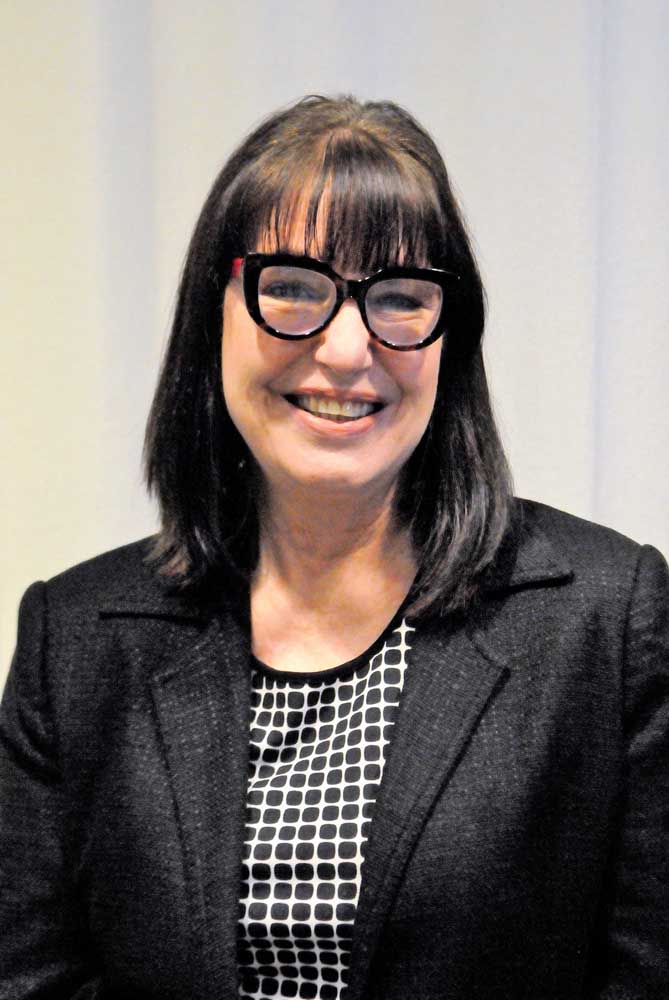Column: Life as a military spouse: Surviving and succeeding on the ‘home front’
Published 8:00 pm Friday, May 5, 2023

- Amy Gallagher
In honor of ‘Military Spouse Appreciation Day’ on May 8, I am highlighting military spouses of two of our East Texas military veterans: Kathi Snow, RN, whose spouse is U.S. Army Lt. Col. Snow, retired after serving 27 years, first in the Vietnam War, then deployments to Germany twice, and South Korea. The couple have two daughters, one son, nine grandchildren and two great-grandchildren.
Talia Rice LPC, is the spouse of Major Kenneth Rice who retired this May after serving 30 years between the Army National Guard and active duty, while deployed to Bosnia-Herzegovina in 1995-96, Peacekeeping Missions, then to Iraq twice in 2008-09 with Operation Iraqi Freedom and again in 2010-11 with Iraq Operation New Dawn. The couple have two daughters, ages 7 and 5.
Trending
While it may seem obvious what a military spouse is, nothing is obvious in military life, including life as a military spouse. Even the definition carries three meanings. At the same time, the definition of life as a military spouse has its own special meaning to each spouse, in what it takes to survive and succeed.
A military spouse is: 1. a spouse of an active duty member of the armed forces, 2. a spouse of a service member who is 100% disabled due to a service-connected injury at the time of separation from military service, or 3. a spouse of a service member killed while on active duty.
“When Jim and I were dating, he was being deployed to Germany for three years,” said Kathi. “It was then we decided to get married. I loved to travel, and I wanted to go to Germany. I said ‘yes’ to both: marriage to Jim and a new home away from home in Germany.”
What’s Kathi’s secret to a successful military marriage? Simply put, “no fussing.”
“If we must move, we must move, so I said ‘OK’,” she said.
Then the reality of military life hit with the beginning of 13 moves and deployments, to two countries and moves around the U.S., from Virginia and Florida to Illinois, and back to VA a few times.
Trending
Talia said “patience and flexibility” are essential.
“It also takes lots of understanding as a military spouse, knowing the military comes first,” she said. “It’s also important to not take things personal when the service member cannot be home on important dates, such as birthdays and anniversaries, and accept change can happen at the last minute.”
Accepting the realities of the unpredictable nature of the military as a spouse is transformed into a badge of strength and independence to manage life, family – the home front – independently.
A recently revised U.S. Army Directive was upgraded to the Soldier and Family Readiness Group [SFRG], formally uniting the soldier’s readiness with family, as one unit, welcoming them into the support network, as an extension of unit command.
The new policy also reduces restrictions on informal funds to allow SFRGs more fundraising flexibility, which would have been a convenient relief for Kathi during Jim’s deployment in Vietnam, when only the enlisted soldier could sign checks, and Jim’s beloved ’67 Mustang was resting comfortably at Kathi’s parent’s house.
“The neighbors across the street reported the car across the street had rolled back and hit Jim’s car,” she said. “But Jim never put his car in my name. I had to [snail] mail the insurance check to Jim in Vietnam for his endorsement which took about ten days.”
Today’s technology has greatly benefited military families, bringing cherished information to communicate with their military family member.
Military service demands sacrifice, and that sacrifice also extends to the military spouse’s career.
“I chose to place my career second to his,” Talia said.
Since her husband’s retirement, Talia continues to serve the military as a licensed professional counselor who counsels veterans and their families in Tyler.
“I’m a lot more patriotic now, but I used to take that for granted,” she said. “I’m very proud of my husband’s accomplishments and loved seeing him give speeches at the military events.”
When the couple moved to Austin in 2019 their children were only 3 and 1, they didn’t know anyone “and had no support; it was tough and isolating,” she said.
Bridging the gap between the military and civilian worlds is at the heart of my column — to generate a level of understanding within the relationships of all Americans, while highlighting the work of the military-to-civilian collaborations.
During all the moves and deployments, Kathi said the joy of traveling to different countries, especially Germany, was learning all the diverse cultures, meeting both military and civilians.
“Americans need to get out and experience real differences within other countries and their cultures, to develop real appreciation as an American with our standard of living and our rights,” she said.
But just because you’re an American doesn’t mean you can exercise the American constitution in another country.
“Germany was still a police state where the people were expected to follow along,” said Kathi.
To put this difference into perspective, Kathi said the tax collector came to their home demanding to know how many televisions they had — “during our first week in Germany,” she said.
Through their 27 years of military service, Kathi said “the willingness to be adaptable to accept this is what it is” is important.
“When we lived in housing, the plumbing always worked when Jim was home,” she said. Finding humor in the unpredictability as a military spouse, Kathi’s confidence strengthened with each move and change, knowing how to “deal with it.”
“Being resourceful and resilient fosters independence to handle unexpected situations,” she said.
Understanding the protocol for housing allowance is another learned lesson.
For example, when Jim left for Vietnam, Kathi learned how to put the house up for rent, put things in storage, pack and unpack, while knowing the exact weight of their household belongings that did not exceed 13,000 pounds.
There is the loss of family during the deployments, and the loss of a different kind.
“I see families with great collections of family heirlooms, handed down from generation to generation,” said Kathi. “Our bedroom furniture is an heirloom, 55 years old. Just the other day, I thought, ‘it really needs to be refinished.’ Then, realized it’s moved 13 times too.”
Military spouses learn to ‘refinish’ the cherished while reinventing their family life, every time another deployment reaches their home.
“It’s important to be able to say, ‘home is where you hang your hat,’ and to make your home wherever you are,” she said.
As in the saying, ‘Wherever you go, that is where you are,’ knowing the benefits and the joys of travel through the exploration of the people and the places you go, much like Dr. Seuss’s famous poem.
During the past over 40 years, Kathi said that while there is a significant difference between the “here and there,” she likes the “here” better — on the home front in America.
Until next time. I welcome your comments at etxveterans@gmail.com. I’d like to hear from you. In the meantime, Memorial Day is May 25, and on May 12, Camp V is hosting the 50th Anniversary ‘Welcome Home’ Vietnam War Veterans Commemoration Ceremony at 10 a.m. at 3212 W. Front St., Tyler; call 903-566-1010 for more information.






